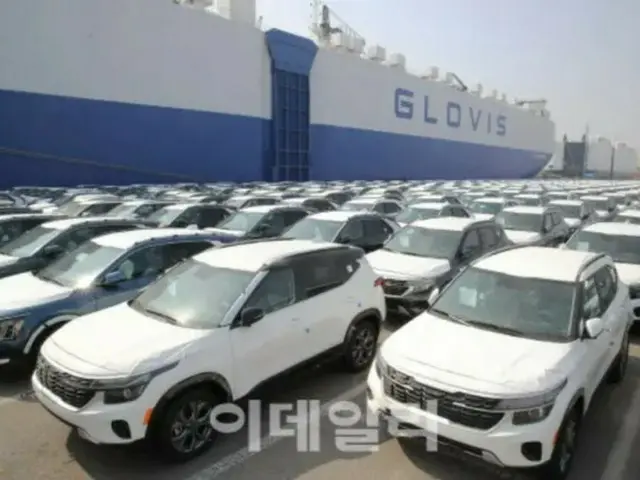The export value was 70,872 million dollars (approximately 10,497,418 million yen), an increase of 31.1% from the previous year. This significantly exceeded the previous high of $54.1 billion in 2022. Korean media said,
The Hankyoreh reported that it was a historic feat. By region, North America accounted for the largest amount at $36.95 billion, an increase of 44.7% from the previous year, followed by the European Union (EU), at $10.8 billion, an increase of 32.9%.
Followed by dollars. The US market is doing well, and last year the number of Korean cars exported to the US exceeded 1 million units for the first time in eight years. Regarding automobile exports to the United States, the inflation control law enacted in the United States two years ago
There were initially concerns about the impact. The law includes a wide range of policy measures, including tax credits for consumers who purchase electric vehicles (EVs) and companies that produce renewable energy.
This is one of the policies that the Biden administration is putting most effort into. Under the law, the U.S. government will provide subsidies of up to $7,500 (approximately 1,030,000 yen) per EV, and will
The company has set a goal of making half of its sales electric vehicles. However, only EVs that are finally assembled in North America are eligible for EV subsidies under this law. Batteries installed in EVs are also used in North America and other countries.
This stipulates that the products must contain at least a certain percentage of important minerals such as lithium procured from countries that have concluded free trade agreements (FTAs) with the United States. South Korean car manufacturer Hyundai Motor Guru
Since the company manufactures EV vehicles in South Korea, it is not eligible for subsidies. For this reason, it is more expensive than EVs of the same class made by other car manufacturers that are eligible for subsidies, so the Korean side
There were concerns from the time the law was enacted that it would be disadvantageous. Subsequently, the U.S. government announced additional guidelines that would provide subsidies without conditions for commercial vehicles sold for lease. this
In response, South Korean automaker Hyundai Motor Group has embarked on a strategy to increase the proportion of lease sales. According to the Korea Automotive Mobility Industry Association announced last month,
By January, a total of 1,172,612 Korean cars had been exported to the United States. This is the highest number since South Korea's automobile industry expanded to the United States in 1986 with the export of the Excel compact car. Also, rice
This is also the first time in eight years since 2015 (1,066,164 units) that the number of Korean cars exported to the country exceeded 1 million units. According to the Hankyoreh, a South Korean newspaper, an official from the South Korean Ministry of Industry said,
After the law went into effect, we actively increased the sales of subsidized products such as commercial eco-cars for rental and lease, leading to a 70% increase in exports to the US compared to the previous year, leading to export expansion.'' of
Indicated. According to the Korean newspaper JoongAng Ilbo, Professor Kim Pil-soo of the Department of Automotive Engineering at Daelim University told the paper, ``Once Hyundai Motor's electric vehicle plant in Georgia, U.S., is completed,
"They will be able to receive full car subsidies and are expected to further increase their share in the U.S. market." On the other hand, what are the factors behind the strong performance of Korean automobiles in overseas markets, including the U.S. market?
According to the Korean newspaper Chosun Ilbo, ``The impact of the continued shortage of automobile supply in the United States and other countries due to supply chain shocks such as the US-China conflict and the spread of the COVID-19 virus infection has been significant.
won. At the same time, the popularity of eco-cars, luxury cars, and other Korean-made sports utility vehicles (SUVs) that are not produced overseas has increased, and the number of exports has increased significantly.
In particular, exports of eco-cars such as Hyundai Motor's SUV Kona Electric are doing well, and the number of exports of eco-cars such as electric vehicles (EV) last year was
Sales increased by 31.3% from the previous year to 729,000 units, and export value increased by 50.3% to $24.2 billion, both record highs. According to the Korean newspaper JoongAng Ilbo, the Industrial Research Institute has predicted that South Korea's car exports will be self-imposed this year.
Including automobile parts, we forecast an increase of around 2% compared to last year.
2024/01/19 12:18 KST
Copyrights(C)wowkorea.jp 5

